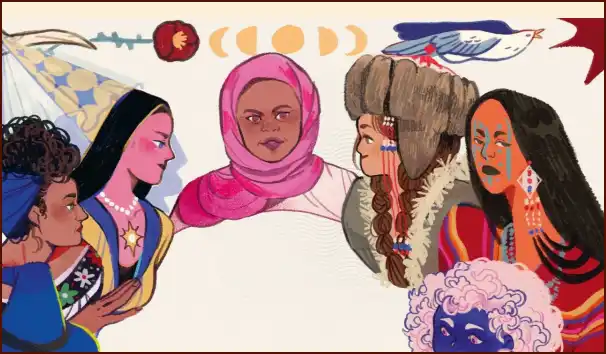In the ancient region of Mesopotamia, located between the Tigris and Euphrates rivers, magic was an omnipresent force in daily life. Mesopotamian cultures, including the Sumerians and Babylonians, believed in a supernatural world teeming with gods, goddesses, and lower-order demons. Magic was perceived as a dual force that could be used for both harm and healing, with natural disasters often being blamed on the malevolent actions of witches or demons. This worldview shaped their entire society, from religious practices to personal protection.
Table of Contents
🧙♀️ Witches and Their Adversaries
Witches, known as kaššapu (male) or kaššaptu (female), were feared figures who were believed to cause harm by casting curses, often using dolls or personal items of their victims. While they were mostly societal outcasts, it’s believed people might have secretly sought their help to curse enemies. Their opponents were the āšipu, religious magic-workers who served the gods and studied magical texts. The āšipu’s role was to drive away demons and counteract evil magic, often working alongside healers to cure the sick.
🛡️ Protection and Cuneiform Tablets
To defend against harmful magic, Mesopotamians engaged in various protective practices. They took part in religious rituals, prayed to the gods, and wore protective amulets often shaped like the spirits they wished to ward off, such as the plague demon Namtaru. Our knowledge of these practices comes from thousands of cuneiform clay tablets, particularly a collection known as the Maqlū (meaning ‘burnings’). These tablets provided the āšipu with detailed instructions and rituals for fighting witchcraft, such as burning statuettes of the witches themselves.
—
Atkinson, Hazel. The Extraordinary History of Witches. 2025.
More Topics
- Curses: The History of the Evil Eye and Binding Magic
- Magical Plants: A Witch’s Garden of Herbs and Poisons
- Roman Magic: Curses, the Strix, and Everyday Protection
- Circe: The Greek Sorceress of Transformation and Myth
- Greek Magic: Hecate’s Power, Oracles, and Enchantresses
- Japanese Magic: Yōkai, Onmyōdō, and Supernatural Folklore
- Empress Chen Jiao: The Royal Scandal of Witchcraft in Han China

